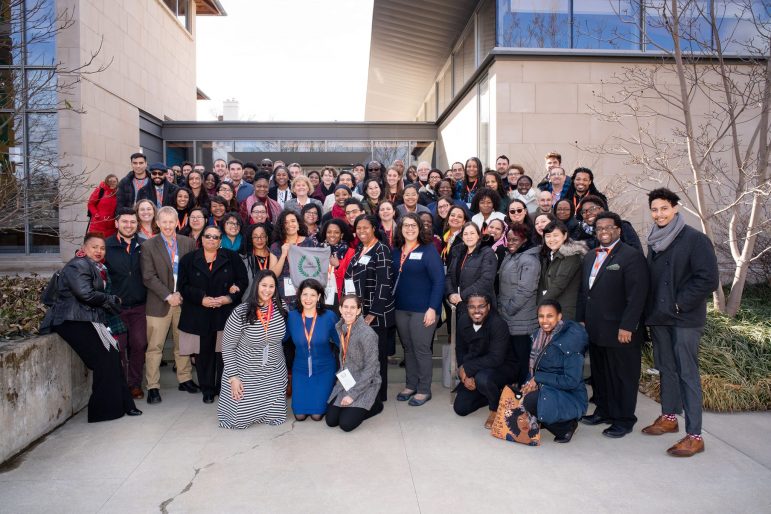Attendees discuss empowering first-generation, low-income students

Eight College students and Associate Dean April Ruiz joined more than 300 students and 150 administrators at the fifth annual 1vyG Conference at Princeton on Feb. 16 and 17, engaging in conversations to better support and empower the first-generation, low-income (FLI) communities at colleges and universities across the country. The 1vyG Conference featured peer discussions, workshops and networking opportunities for students representing 34 institutions. This year’s conference was the first attended by the College, and it centered around the theme “From Moment to Movement: Capitalizing on Our FLI Experiences to Become Agents of Change in Our Communities.”
“One of the primary purposes of this convening is to build community so that we might better share best practices and, ultimately, enhance the experience of the first-gen, lower-income students on our campuses,” Princeton’s Associate Dean Khristina Gonzalez said of the conference. “We want to promote not just access, but [student] success. This is not a one-off event. This is not simply a moment, but indeed a movement.”
A combination of students and professionals spoke at the conference, including Anthony Abraham Jack, author of The Privileged Poor: How Elite Colleges Are Failing Poor Students, and Kameelah Mu’Min Rashad, founder and president of Muslim Wellness Foundation. Talks focused on pressing issues for the community, such as defying career norms to navigating the hidden inhibitors of FLI success.
While the conference featured students from varying geographies and backgrounds, ambassador and mobilizer Sara Hetherington ’19 was struck by “how quickly we could start talking about things … especially if conversations started about it’s like to go from where home is for you to a place that is kind of more elite or privileged.”
For some, the opportunity to interact with students from peer institutions introduced new perspectives and promoted unity.
“Going into this conference, I went in with a very Williams-centric perspective,” Kiersten Campbell ’21 said. “I wanted to go there and learn about strategies to make Williams better. But I think in talking with people from other institutions and hearing about the differences in how first-gen communities are supported across institutions really shifted that perspective. And I think I left instead — definitely wanting to improve the first gen community — but I left more interested in seeing how knowledge and strategic sharing could be implemented between Williams and other institutions to make a broader first-gen community feel supported.”
While administrators received updates and check-ins at the student-centered and student-led 1vyG Conference, a separate FGLI Consortium Conference was held for administrators to discuss ways not only to improve the accessibility of higher-education but also to work on providing resources and empowering students while they are at the institution. Faculty and staff discussed subjects ranging from supporting undocumented students to creating pathways for students toward graduate and professional schools.
“It’s very rare that I attend a conference where everyone is so warm, welcoming and on-message,” Ruiz said. “It’s cool to be in a space with other professionals who understand. We are all faced with the same challenges in different sorts of packages and we are all trying to move in the same direction, and we just have to do it in different sorts of ways.”
For Ruiz and the students who attended the 1vyG Conference, the next step is to share what they have learned with the broader first-generation community at the College.
“We could only take eight delegates, but definitely the information we learned at [the 1vyG conference] is applicable to all first-gens,” Campbell said.
The conversation on inclusivity and opportunities for FLI students has been an ongoing effort at the College. Earlier in the month, President of the College Maud Mandel attended a summit, hosted by the American Talent Initiative – a program aiming to increase the accessibility of higher education for lower-income students – with nearly 100 other college and university presidents and administrators.
“As I mentioned in my Claiming Williams remarks, we’re very much in the process of reimagining a school that, for most of its history, served a very specific constituency, and thinking about how it can now serve a more diverse student body,” Mandel said. “Williams isn’t alone: That’s true of most schools in our peer group. But I think we can help lead the continuing work of opening access, providing support and removing barriers to success, diversifying our faculty and staff, as well as our student body, and broadly transforming the face of our institutions for the good of society.”








